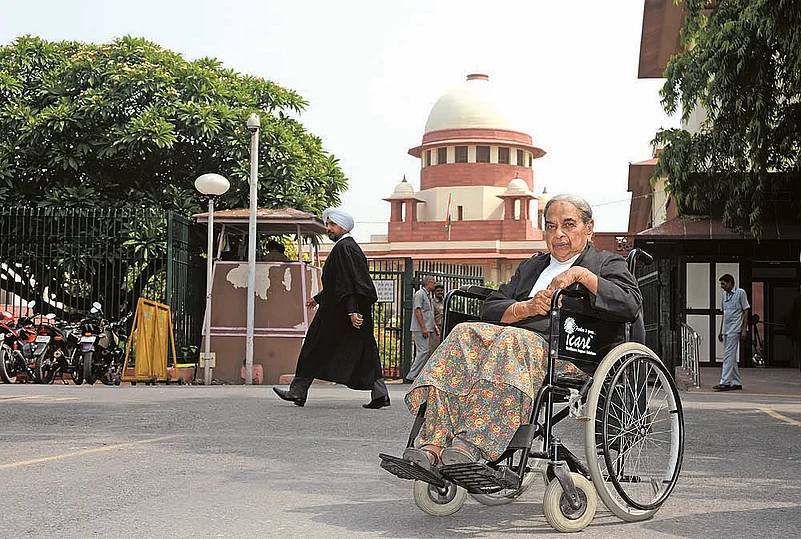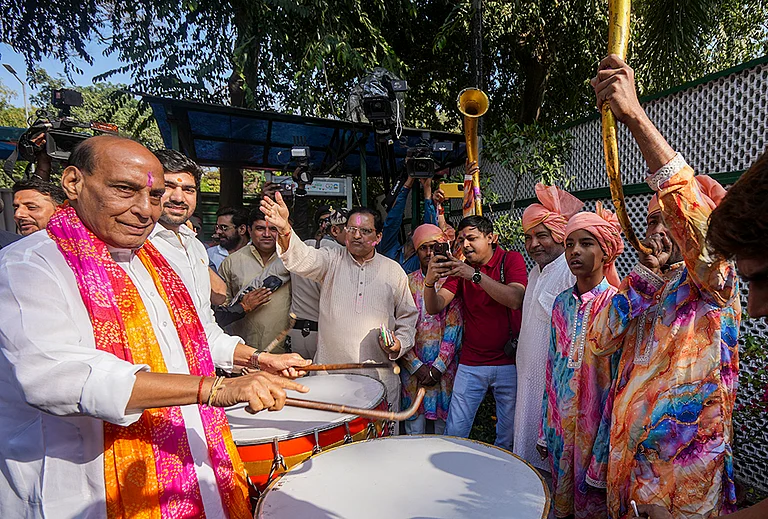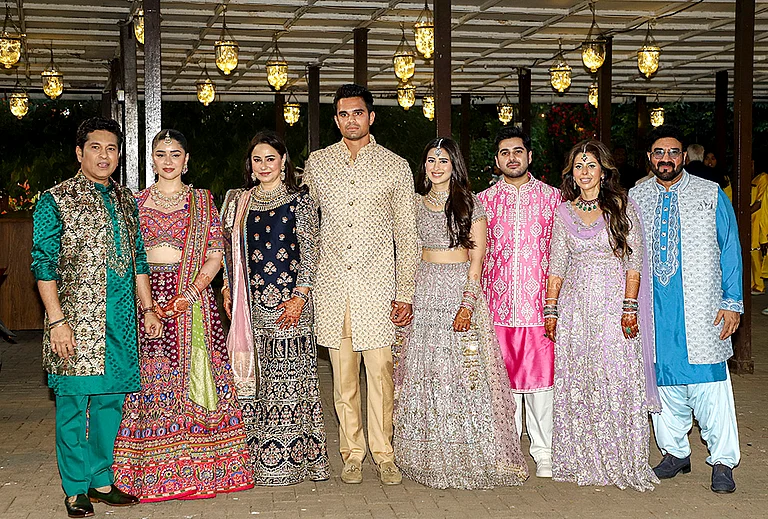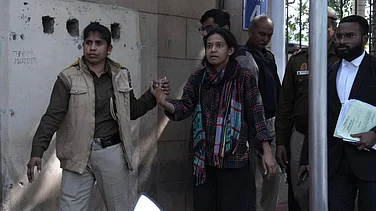Five months ago, Supreme Court advocate Lily Thomas approached constitutional expert Fali S. Nariman with a request: “Please argue my case.” Having heard her out, Nariman agreed. Says Lily, “My petition required someone of the stature of Mr Nariman to argue before the court.” It was the petition that led to the Supreme Court’s landmark judgement this week that MPs and MLAs must immediately be disqualified on conviction. Earlier, they were allowed three months to file an appeal; now, they may appeal, but after immediate disqualification. It’s a judgement political parties, criminals in politics and corrupt holders of public office will find difficult to ignore.
The list of politicians—convicted or not—with involvement in crime, scams, financial wrong-doings, corruption and so on is long. Many, such as those involved in the CWG and 2G scams, have high-profile defence lawyers. Some have been convicted by a lower court, but pending appeal, continue to be legislators; some even hold posts in government. The verdict of the Supreme Court does not allow that now.
And the woman smiling toothily at that judgement—her “my answer to God” work—is a spunky 85-year-old. Sitting in her chamber which is overflowing with files, Lily says, “We need a clean government. It is the life-breath of democracy and as lawyers, we have to bring the anomalies in political life to the notice of the court. What will we say when God asks us, ‘What have you done as a lawyer?’ I need to answer him.”
Lily keeps her faith and her compact with law is sacred. It has been quite a wait for Lily: she had filed her petition in 2005. Lok Prahari, a voluntary group, strengthened the case when it filed a similar petition in the Supreme Court around 2007. Lily makes no secret of her disenchantment with corruption in politics. “Criminals should not be in public life,” says the doughty advocate.
After having practised as an advocate at the Madras High Court, Lily moved to Delhi in 1960 for research work in law. “My father told me that all I had to do was to seek help from the policeman in hiring a cab and that’s what I did. I landed at the Supreme Court and have been practising since then,” she says.


| In the past, cover stories by Outlook have looked at MPs and MLAs who continue to remain so despite conviction. | ||
Our cover story this week focuses on nonagenarians with a zest for life, aspiring to a perfect 100 score. Lily doesn’t make the mark by a few years, but she can lay claim to one thing: of investing her personal and professional energies in trying to clean up public life. Through her romance with law, she has kept her head firmly on her shoulders, coolly countering judges who occasionally ribbed her about her decision to remain single. “When one Supreme Court judge asked me why I hadn’t married, I retorted that the men I loved had either become judges or priests,” she says. She quietly confesses that she has read some 200 Mills & Boons romances.
Back in 2000, Lily was associated with another landmark case. This time for the rights of a woman whose husband had changed his faith to remarry. The courts held that a married man whose marriage is governed by the Hindu Marriage Act cannot marry once again merely by changing his religion unless his first marriage is dissolved or declared null and void.
In many ways, the recent judgement of the Supreme Court is also the vindication of a cover story done by this magazine in 1998. Seventy-two politicians were identified by a panel as corrupt and unfit to contest in elections. Yet they were given tickets and they won. That has just become a little harder now with the court judgement. What did the recent petition claim and what does the judgement promise? Lily’s petition asked that Clause 8(4) of the Representation of the Peoples Act be removed because it allows sitting MPs and MLAs to continue as elected representatives even when they are convicted. Lily’s petition—and that of the voluntary group—argued that this safeguard is ultra vires to the Constitution of India. The court has struck down the clause to remove the anomaly: simply put, while convicted politicians were debarred from contesting elections, they could continue being legislators once elected! Now, the Supreme Court has ruled that MPs and MLAs, on conviction, will be immediately disqualified. Earlier they were allowed three months to file an appeal. Now, they cannot. So, if for the sake of argument a Laloo Yadav, or Jayalalitha, who have cases pending before various courts, are convicted, they face immediate disqualification. They can continue to appeal against the decision in higher courts. “This,” says Anil Bairwal of the Association of Democratic Reforms, “will deter political parties from fielding chargesheeted politicians. Who knows, they might end up being convicted. Why would political parties give tickets to such people now?”
But getting politicians acquitted is not without its share of problems. Often, the cases are a long-drawn-out affair, dragging on for years without a verdict. Vrinda Grover, a senior advocate at the Supreme Court, says, “The judgement should also pave the way for a legally tenable witness protection programme that allows witnesses to depose against politicians without fear.”
Senior advocates like Manoj Goel also strike a note of caution when they say that politicians, like all citizens of the country, should have the right of appeal against a verdict and this should be examined within a set time-frame, so that “when convicted, a politician will step down; and if he’s cleared on appeal, at least he won’t be tarnished for life.” Incidentally, there is a public interest litigation (PIL) pending before the court seeking fast-tracking of criminal cases pending against MLas and MPs.
While the judgement in Lily’s petition is a landmark, some doubts remain. How far will this go in cleaning the political stables? For the moment, Lily is happy and has already moved on to another case. This one has to do with elections to the gram panchayats. As she carefully underlines her argument, she issues the following invitation. “Come to me and let’s talk about cleaning up grassroots democracy.” There is a lot left to be done, as long as she can, Lily will keep on trying. And arguing.






















